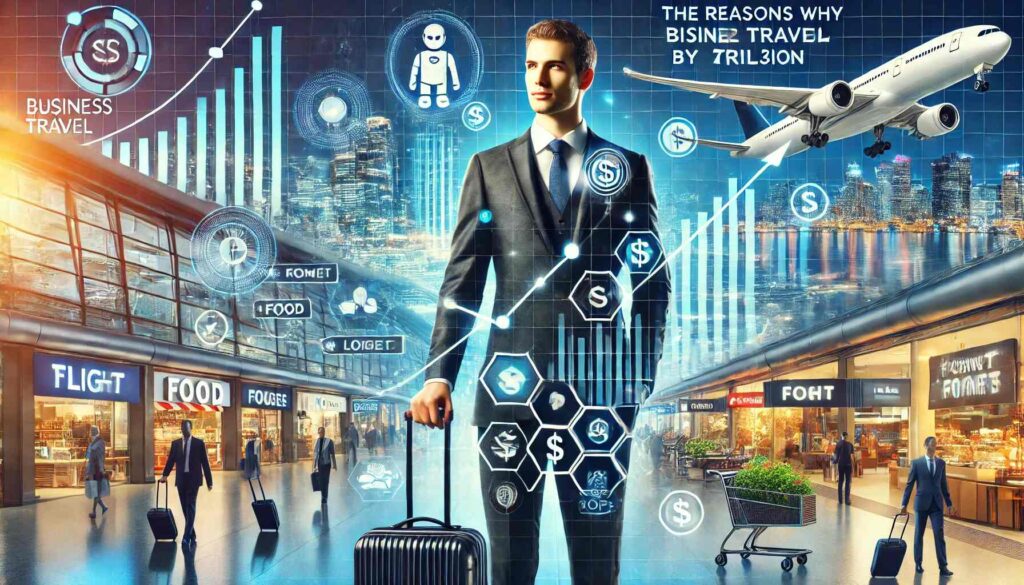Wednesday, July 17, 2024
Reading Time: 2 minutes
The global business travel market, valued at $689.70 billion in 2021, is projected to reach an impressive $2.1 trillion by 2031, growing at a compound annual growth rate (CAGR) of 9.5% from 2022 to 2031.
Key Insights and Trends
Food & Lodging Segment Leading Growth:
The food & lodging sector is expected to experience the fastest growth among services, with an estimated CAGR of 9.8% during the forecast period. This surge is attributed to the rising trend of blending business with leisure, known as “bleisure,” and the advancement of smart hotels and personalized travel experiences.
Market Dynamics
Growth Drivers:
- Incorporation of Leisure: The increasing practice of integrating business trips with recreational activities is enhancing employee efficiency and reducing stress.
- Rise of Online Travel Agencies: Platforms like booking.com, KAYAK, and Expedia are simplifying travel arrangements, contributing significantly to market growth.
- Expansion of the Travel & Tourism Industry: Government initiatives to develop the MICE (meetings, incentives, conferences, and events) segment and support SMEs are propelling the market forward.
- Globalization: The globalization of business operations necessitates frequent travel for meetings, deal negotiations, and networking.
Emerging Trends:
- Bleisure Travel: Combining business and leisure is becoming increasingly popular.
- Technological Innovations: The use of IoT, virtual reality for bookings, and robotics in hotels is enhancing customer experiences.
- Robotics: Robots are being utilized for guest services, luggage handling, and even food preparation, which is expected to further boost the food & lodging segment.
Market Segmentation
The business travel market is segmented by service, industry, traveler type, and region:
- By Service: Transportation, food & lodging, and recreation. Transportation includes air, rail, and car travel.
- By Industry: Government and corporate sectors.
- By Traveler Type: Group and solo travelers.
- By Region: North America, Europe, Asia-Pacific, and LAMEA.
Key Players
Major players in the business travel market include:
- American Express Company
- BCD Group
- CWT Global B.V.
- Chase
- Navan, Inc.
- TravelPerk S.L.U
- Corporate Travel Management Limited
- Flight Centre Travel Group Limited
- Citi Bank N.A.
Challenges and Opportunities
Challenges:
- Technological Substitutes: The rise of video conferencing as a cost-effective alternative to travel is a significant challenge.
- High Costs and Geopolitical Uncertainty: The high cost of business travel and uncertain global geopolitical conditions can hinder market growth.
Opportunities:
- Infrastructural Investments: Increased investment in infrastructure and the travel retail market are anticipated to offer lucrative growth opportunities.
- Technological Advancements: Continuous advancements in travel technology are expected to enhance market growth.
Impact of COVID-19
The COVID-19 pandemic severely impacted the business travel industry, with a reported 52% decline in global business travel spending in 2020. The industry faced unprecedented losses, with North America, Europe, and Asia-Pacific experiencing significant declines. However, government initiatives, such as Singapore’s increase in capacity limits for MICE events, have been pivotal in the industry’s gradual recovery.
Conclusion
The global business travel market is on a robust growth trajectory, driven by the integration of leisure with business, technological innovations, and increased globalization. Despite challenges, the market offers numerous opportunities for growth and expansion.
